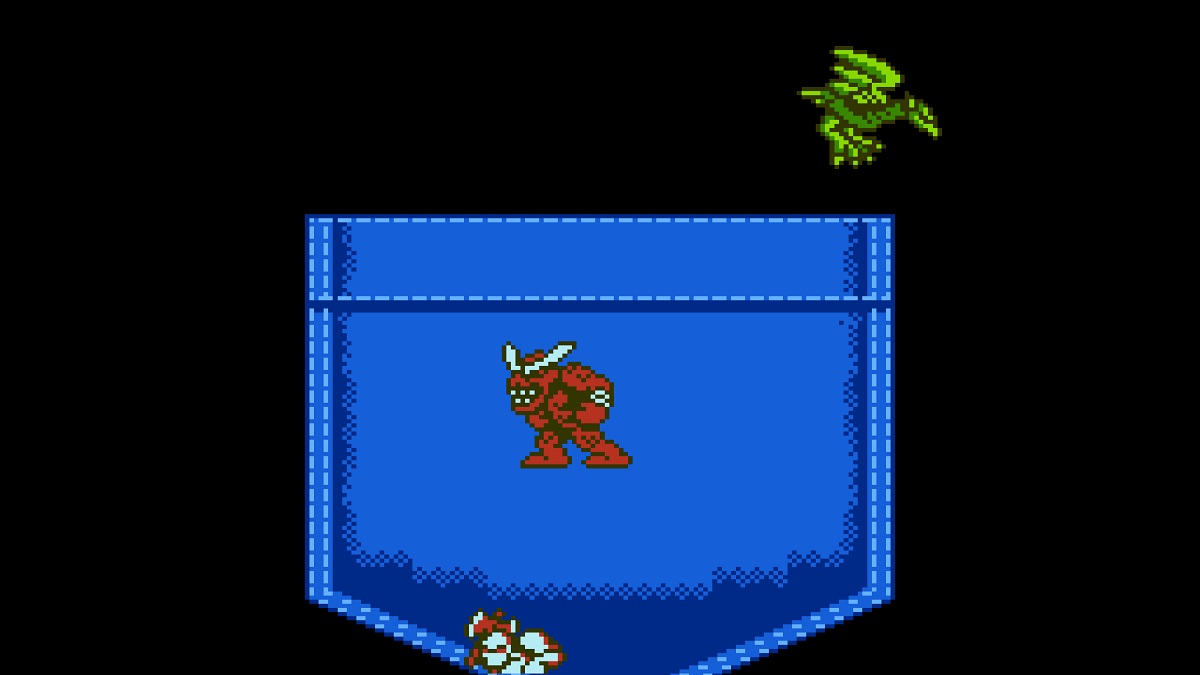I mentioned this once before, but after the launch of the Super Nintendo in 1991 (1990 for Japan), Konami went through this weird period of producing licensed games that were way better than you’d expect. I’ve covered Bucky O’Hare, but there’s also Zen: The Intergalactic Ninja, and this one: Monster in My Pocket.
Monster in My Pocket is more than just a cheeky euphemism, it was this media franchise in the age when everyone wanted a media franchise. Well, it was an attempt at one. It was based around a series of tiny figures produced by Matchbox, but they also pushed a cartoon special and a comic that only made it through four issues. It was pretty short-lived.
The Monster in My Pocket NES game came out in 1992. Among the short list of staff who worked on the game is Etsunobu Ebisu, who would become a major figure in the Ganbare Goemon series. I mean that literally. The character of Ebisumaru is based on the guy. Now, he’s the president of Good-Feel. The other staff members are hardly slouches, either, but Ebisu is the one who’s still relevant today.
So, yeah. It’s more attention than you’d expect from a licensed game. Especially when you consider that licensed games at the time were typically dredged up from swamps.
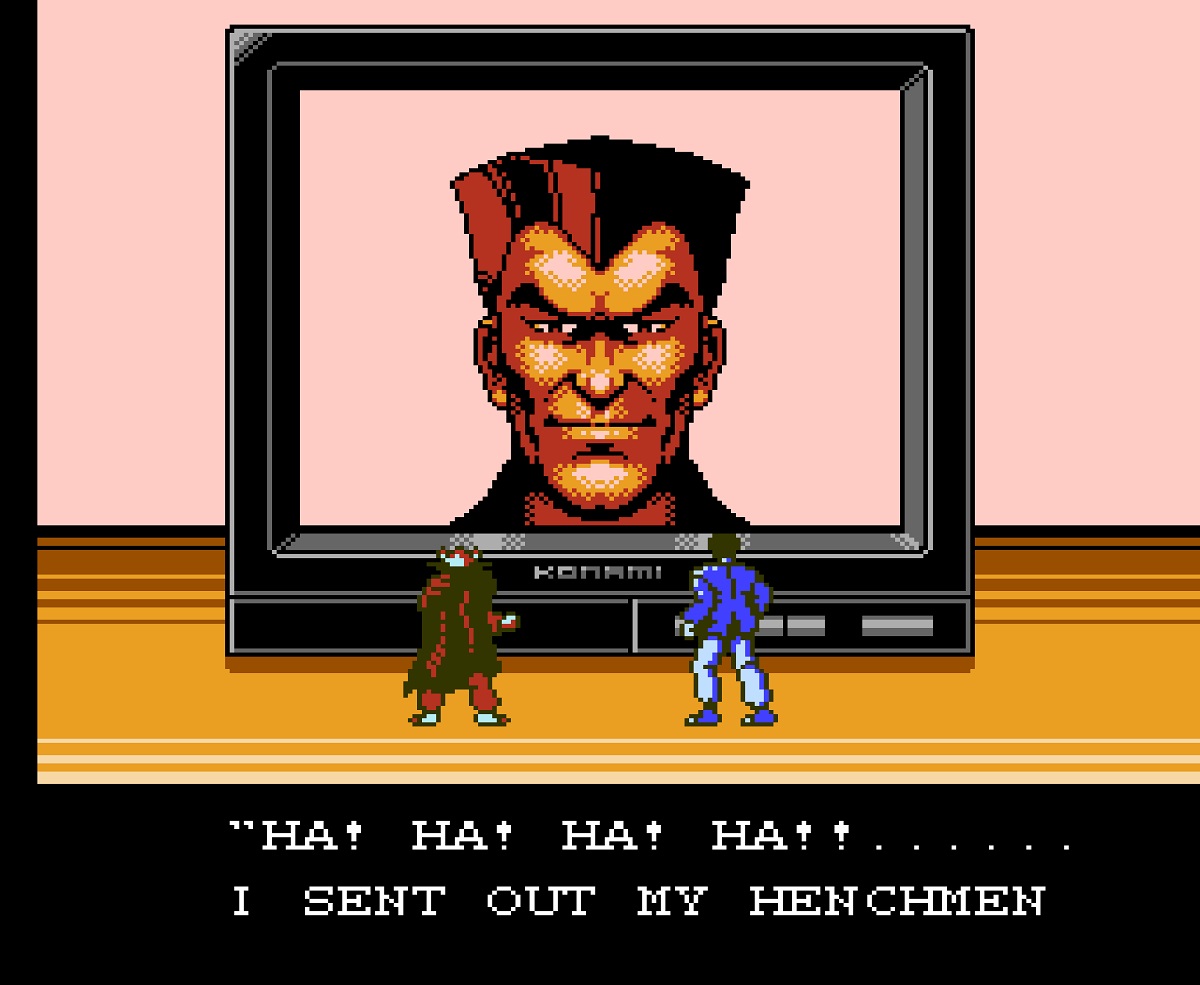
I will keep my analogies holstered
Circling back to what Monster in My Pocket actually is; they were tiny little rubber figurines of, obviously, monsters. They were pretty cheap, and you could buy packs of them to fill your pockets with.
There’s a lot you can do when you just mash a bunch of monsters together, but the narrative of Monster in my Pocket is that Guile from Street Fighter II is evil, and he wants to… Uh, do evil, I guess. Vampire and (Frankenstein’s) Monster set out to stop him. To do so, they have to wade through all his various underlings.
Also, all the monsters are tiny. That’s important.
The plot might be pretty limited, but the really cool part of playing the game is seeing all the various toys you might have in your collection brought to life. Personally, I didn’t ever get into the toys. I would have been three or four when they first came out, so I probably would have just stuck them up my nose or whatever kids that age normally do. However, I could totally see the appeal of trying to identify all the various toys.
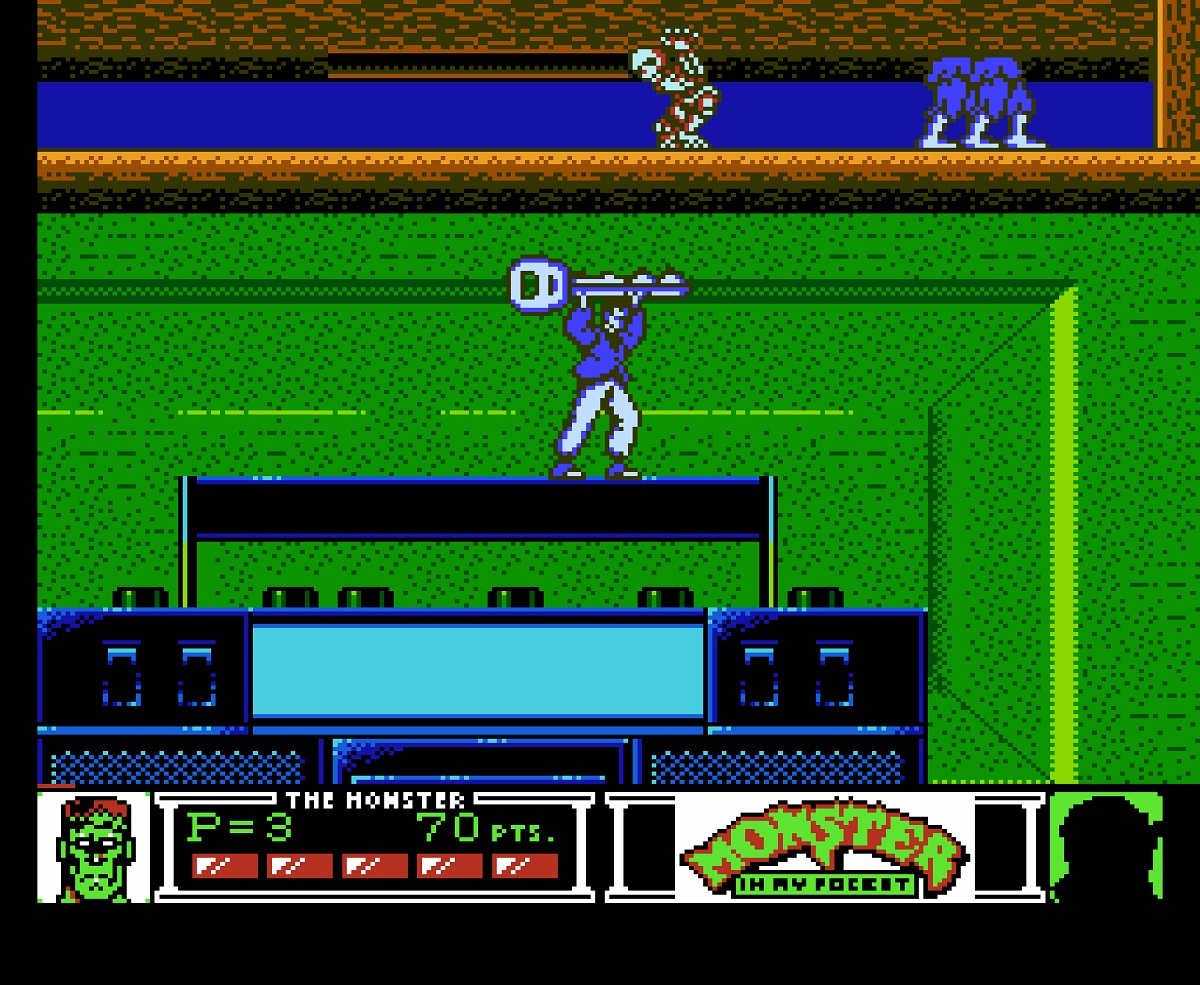
Shatter-pocket
As a game, Monster in My Pocket is a pretty standard side-scroller with a shade of brawler. You run along and punch everything in your way, trying not to get hit in the process. Sometimes, you can pick up objects from the environment and throw them, but this is pretty rare and not all that useful. There are places where there’s a bit of branching in the environments, but it’s mostly just a “high road, low road” kind of situation. Speaking of which, it isn’t immediately obvious, but you can double jump.
In a way, the brawler-sidescroller mix feels a bit like Shatterhand, but don’t get your expectations too high; this is a really basic game. At least it has two-player simultaneous co-op.
What really brings its quality up is its use of various effects and technical trickery that the NES doesn’t typically do well. This includes quickly scrolling backgrounds, four-way scrolling, and fake parallax effects. This was the sort of thing that Bucky O’Hare also did, as well as Zen: Intergalactic Ninja, but we haven’t gotten there yet.
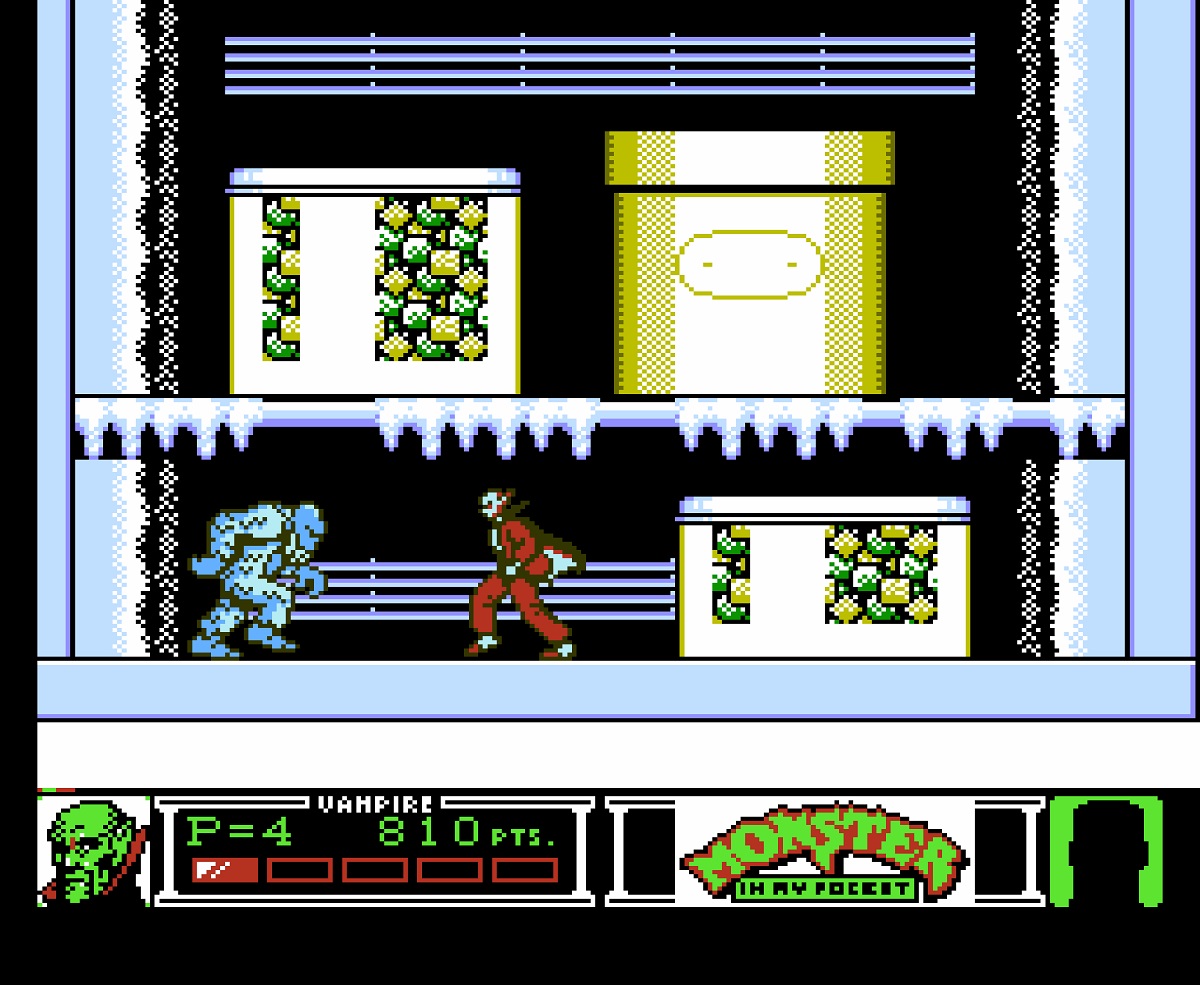
Pocketful of pugilists
The downside is that the enemies tend to heap up on the ground of these levels, and it causes a lot of flicker, especially when you’re punching your way through them.
This leads me to a question for other people who play a lot of NES: have you also just gotten used to sprite flicker? I’m not trying to diminish the limitation. It’s really distracting and doesn’t help the aesthetic whatsoever. However, when playing this, I realized that I don’t even notice anymore. I wonder if this is how children were able to tolerate it.
Anyway, the levels take you through a house, into a kitchen, out onto the streets, over a construction site, into Japan (weirdly), and then to a monster castle. Six stages. It’s a very short game, but there are limited continues, so it may take you a few attempts to get through it. Even with that, the first time I played it, I had it done with before the afternoon was over.
There is some variety to the levels, but not a whole lot. The bosses are really where it’s at. I kind of wish I knew who these toys are. I think the first boss is Mad Scientist, and the fifth boss is Banshee (who was apparently never released). The bosses are pretty simple, but they take some pattern memorization to take down without dumping a few lives.
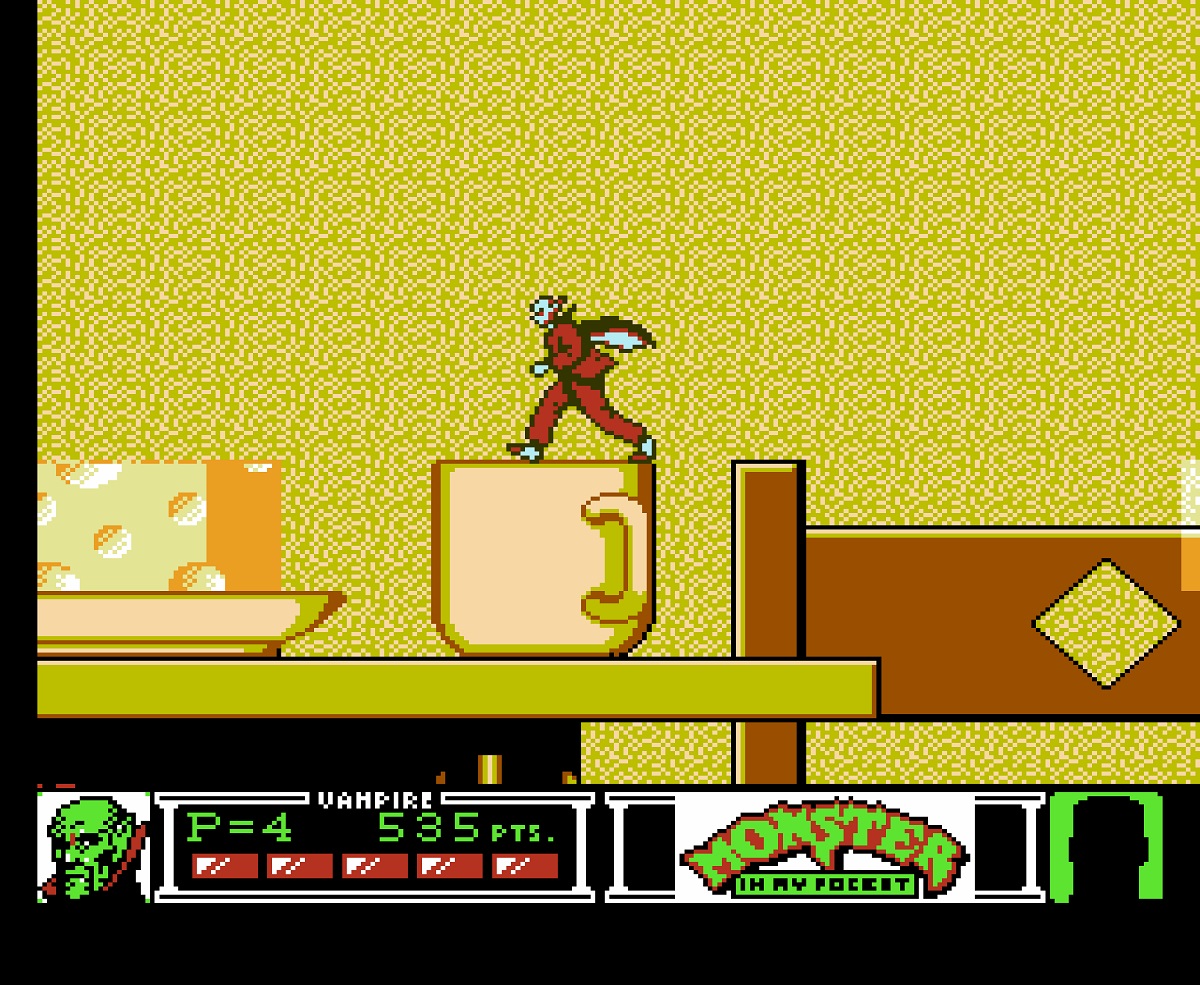
Evil-Guile’s revenge
The music is pretty pleasing, as well. The track for the fifth level, Oriental Illusion (I know), sounds like it could have been from one of the Ganbare Goemon games. I don’t think there was really much of an existing soundtrack to base the game’s music on, so it’s basically just top-shelf NES noodling.
I think the point I’m trying to land here is that Monster in My Pocket is way better than it should be, but not all that special aside from some technical delights. It has an advantage over Bucky O’hare in that it isn’t especially frustrating. Plus, there’s two-player co-op, if you can handle the extra flicker.
However, that’s what makes games like Monster in My Pocket more fascinating. It doesn’t feel like it should exist. Why not a Sega Genesis or SNES game instead? That seems like it would be easier. The fact that it was released on a console that was at the end of its lifespan, I would have expected it to be phoned in. But it’s not. It’s a completely competent game. Inoffensive at its very worst. Developers who were well beyond what the project called for still gave an impressive effort. You’ve got to hand it to them.
For other retro titles you may have missed, click right here!


